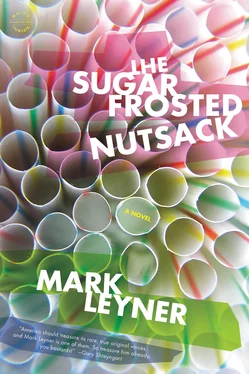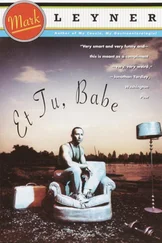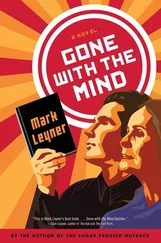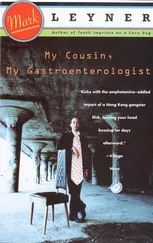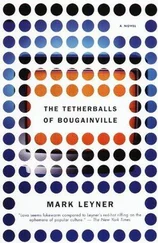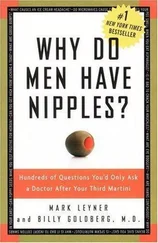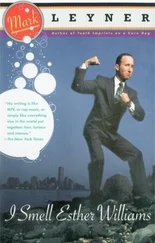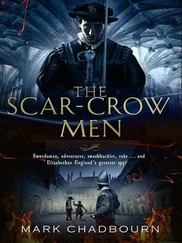Before the arrival of the Gods, everything was wildly italicized. This was the time of the so-called “Spring Break.” There were only phenomena and vaguely defined personages, and there was really no discernable distinction between phenomena and personages. There were no “Gods” per se, no dramatis personae, there was only an undifferentiated, unidimensional T.S.F.N. — only the infinitely recursive story and its infinitely droning loops, varying infinitesimally with each iteration. But once the Gods arrived and got off the bus, they insisted on being boldfaced signifiers.
This whole epic is about the war on the part of T.S.F.N. to vanquish the boldfaced signifiersand reestablish the “golden age” when things happened without any discernable context; when there were no recognizable patterns; when it was all incoherent; when isolated, disjointed events would take place only to be engulfed by an opaque black void, their relative meaning, their significance, annulled by the eons of entropic silence that estranged one from the next; when a terrarium containing three tiny teenage girls mouthing a lot of high-pitched gibberish (like Mothra’s fairies, except for their wasted pallors, acne, big tits, and T-shirts that read “I Don’t Do White Guys”) would inexplicably materialize, and then, just as inexplicably, disappear.
One possible conclusion that could be drawn from this, of course — and it happens to be precisely the conclusion reached by the apocryphal “Justices of the Eighteenth Season” (these Justices who seem almost bard-like in their black hoodies, their scrotums dusted with confectionary sugar) — is that XOXO, whose ongoing and indefatigable campaign to undermine context and disrupt cohesiveness (i.e., his vandalism and vajazzlement of the epic) is, by now, familiar to anyone who’s not totally brain-dead, is actually working in collusion with T.S.F.N. And, in fact, the majority of the Justices — the vote was 8–1—question whether the so-called “war between XOXOand T.S.F.N. ” might not have always been a front or a pretext for this collusion between XOXOand T.S.F.N.
But this whole notion of “Justices in black hoodies, whose scrotums are dusted with confectionary sugar” seems suspect. Who are these “Justices”? Are we meant to infer that they are the habitués from the Miss America Diner— Joe Shmoe, John Q. Public, Every Tom, Dick, and Harry, Your Average American Sports Fan, etc. — those men who so shamelessly and ostentatiously flaunt their vaunted anonymity? And what of this so-called “8–1 decision” suggesting that XOXOand T.S.F.N. are now working in cahoots, that they are, one or the other or both of them, double agents of some kind? Isn’t this all beginning to sound suspiciously familiar? Isn’t it more than plausible that all of this is part of the incredibly sophisticated disinformation campaign being waged by XOXO? This vexing suspicion is the very basis for the lone, dissenting vote — that lone, dissenting vote belonging, of course, to Ike Karton.
The hero Ike—unwavering, irreproachably self-abnegating, aloof, Warlord of His Stoop — offers neither oral nor written opinion. His dissent is mute. He strikes a pose of implacable mute dissent. He just stands there on his stoop, on the prow of his hermitage, and he strikes that contrapposto pose in his white wifebeater, his torso totally ripped, his lustrous chestnut armpit hair wafting in the breeze, his head turned and inclined up toward the top floors of the Burj Khalifa in Dubai, from which the gaze of masturbating Goddesses casts him in a sugar frosted nimbus. (This is the “glaze of the gaze”—the onanistic scrutiny that sugar frosts Ike’s every move — which Abercrombie & Fitch model and 90210 star Trevor Donovananalyzes in his book The Jade(d) G(l)aze: Twelfth-Century Goryeo Celadon Pottery and Ceramics .)
Many of the epic’s most perceptive commentators have underestimated or missed altogether or dismissed as so much incoherent, dilettante bullshit (or as the product of the Brownian motion of Ike’s paranoid ideation) the complexities of the Boldfacev. Italics case and this whole notion of “Justices in black hoodies, whose scrotums are dusted with confectionary sugar” (with its choral judgment of the dissenting voice — that judgment and that doomed voice staking out the dialectical polarities of martyrdom). One expert said, “With most of T.S.F.N., we can sing along by ‘following the bouncing ball,’ as Mitch Miller(whom many experts consider to be the ‘inventor’ of karaoke) used to instruct viewers of his 1960s television show, Sing Along with Mitch . But in this Season, we’re being asked to follow the red rubber tip of a paranoid flâneur’s walking stick as he jabs it at your head.”
After the massacre of drug-addled, blind bards by jilted husbands (a bloodbath purportedly masterminded by XOXO), a shadowy splinter group was formed, calling itself T.S.F.N. — General Command. This group, which was fanatically anti- XOXO, began recruiting members in the fetid, overcrowded refugee camps to which the surviving bards fled after the massacre. After establishing links with La Felina, they forged an unlikely alliance of convenience with the nihilistic, glue-sniffing street punks who’d hacked to death and cannibalized Lloyd Blankfein. On an oppressively hot summer night, marked by a bizarre outbreak of ball lightning which left all of Jersey City reeking of sulfur, an assassination commando unit comprised of blind T.S.F.N. — General Command bards and glue-sniffing street punks — who’d recently taken to calling themselves giovanetti martirizzati (“martyred youth”) from the zozzo mondo (“slob world”) — supposedly descended on the Miss America Diner and slaughtered the eight “Justices in black hoodies, whose scrotums are dusted with confectionary sugar,” in retaliation for their having promulgated the idea that T.S.F.N. is working in collusion with XOXO. What Makes Ike a Hero?
His implacable hatred of the rich is, among other things, what makes Ikea hero. An anarcho-primitivist, he strives to restore the world to an antediluvian arcadia (what he calls “Spring Break”) where no one man or woman seeks more wealth or notoriety than the next, and where the Gods are content to be indistinguishable from phenomena. And he dreams of a new Jacobinical Terror, of deploying guillotines outside Soho House (in West Hollywood and New York), of harvesting the severed heads of Hollywood A-listers and dropping one down the chimney of each and every child who’s been good that year (i.e., each child who’s militantly resisted celebrity worship in his or her school and who’s been modest, reticent, and almost naively kind to others, especially the misshapen and the misbegotten).
Basically, at every moment, Ikeis trying to figure out how to constitute himself and how to situate himself in history. And this, among other things, is what makes Ikea hero.
Like all epic heroes, Ikehears the narration of the epic in his head and frequently mouths the words (sometimes audibly) to himself as he ritually reenacts the epic. This, of course, is what is meant by the term “epic karaoke” or “recursive karaoke” or “karaoke mise en abyme. ” The ritual reenactment and murmured karaoke recitation of the epic of which he is the hero constitutes Ike’s life. This is the life to which Ikeis doomed. This is why he is so frequently described as “death-drenched.”
Читать дальше
